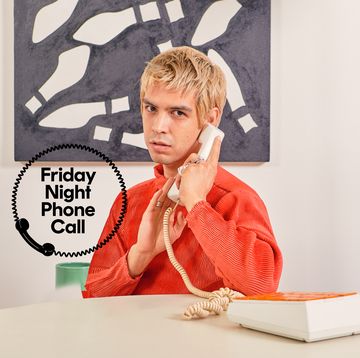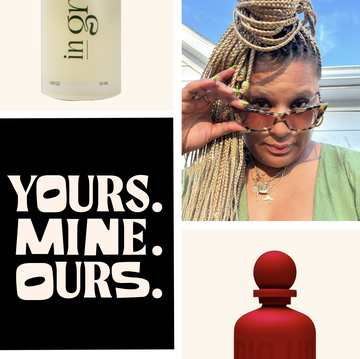Hey, you! Welcome to the little corner of Cosmo that we call Free Therapy. We’re glad you’re here. This is where we take reader questions—about family feuds, work woes, friendship fiascos, mental health headaches, and everything in between—and get answers on how to deal from our advice columnist extraordinaire, therapist Minaa B.
If you need help setting boundaries, standing up to your boss, or finding the right words when talking to your toxic mom...you’re in the right place. And if you’ve got questions of your own for Minaa, send ’em right here: [email protected]. No health insurance (or $$$ at all, for that matter) required.
Dear Minaa,
I’m lowkey obsessive about checking in on people I used to know. Every time I open up my phone for a good ol’ mindless swipe ’n’ scroll (which is, uh, often), I mentally run through a checklist of people I like to keep virtual tabs on. My newly married ex from college? On The List. My former middle school BFF who’s now a mom of two and the proud new owner of a lake house? Also on The List. So are a slew of other now-strangers I haven’t interacted with since Obama was in office.
Let me clarify that I don’t truly care about these people, like my friend’s mom who recently divorced her husband and married her much younger contractor. I’m really only invested in their posts—not their actual lives, which, for the most part, are super different from my own. If I’m not online, I’m not thinking about them at all.
Yet I just can’t stop myself from checking up on them, even though I promise I don’t actually want to know the name of my ex’s new puppy (it’s Ruby) or anything about my former cheer coach’s MLM hustle. So my question is: What is going on and why can’t I quit? Is it normal to know so many details of super-random people's day-to-days? I would love to physically and emotionally unfollow these folks and get back so much wasted time.
Dear Reader,
First of all, your behavior is completely normal. People like to judge those who habitually scroll Instagram or TikTok, but that act is really no different from eating a snack when you need a mental break or having a glass of wine when you’re feeling stressed. It could be that your mind craves the stimulation and pleasure it gets from watching the lives of others. (Plus, social media algorithms are designed to keep us coming back, so trust that you’re not the only one caught in this cycle.)
You might find it hard to quit because it’s natural for our brains to desire a reward during downtime—and that reward can fuel further cravings. In his book The Power of Habit, author Charles Duhigg describes three elements that go into the making of a habit: a cue, a routine, and a reward. The cue is an internal or external thing that triggers you to take action—for you, it could be boredom or listlessness. You might not like how you’re feeling in the moment, and that prompts you to resort to something that makes you feel better. Your routine is picking up your phone, and your reward is the quick dopamine hit you get from scrolling.
Following seemingly random people can also create a false sense of intimacy. You know so many details about their lives, and the more you learn, the more you feel like you’re right there with them personally. Even if you haven’t spoken in a decade and you don’t actually like them, you’ve formed an attachment to their updates. Your emotional connection to them may be an illusion, but it’s a powerful one that’s hard to give up.
Another factor is that your scrolling is likely a source of escapism for you. You get to leave your own life for a minute and investigate how things are going for others. And because you did actually know these people at some point in your life, it can be intriguing to see how their stories are playing out. Again, this is very normal and not necessarily unhealthy—especially if the short-term reward you get isn’t creating long-term consequences like feelings of anger or sadness about your own circumstances.
All of this said, because your social stalking has started to feel more like a time suck than a source of relief, you can try to adjust your daily ritual. One way is to swap it for something that’s a little more nourishing for you. What activities make you feel good? What might promote positive change or teach you something instead of just distracting you? Try whatever comes to mind as a replacement for your scrolling.
Ideally, you’d do something that doesn’t involve your phone at all, like going for walks or talking to friends in person. Or, if you must, think about other things you can do on your device—like listening to an audiobook, journaling in your notes app, or playing something stimulating like Wordle. Will you get as much of a rush as you do from a deep scroll through your ex’s grid? Maybe not right away. But you’ll be setting up new habits and working toward the release you’re craving.
Minaa B. is the author of Owning Our Struggles, a licensed social worker, and a mental health educator. She operates a mental health consulting practice that assists organizations in developing psychological safety. She also shares resources on how to develop healthy relationships in her Substack newsletter, Mindfl With Minaa. She lives in NYC.














